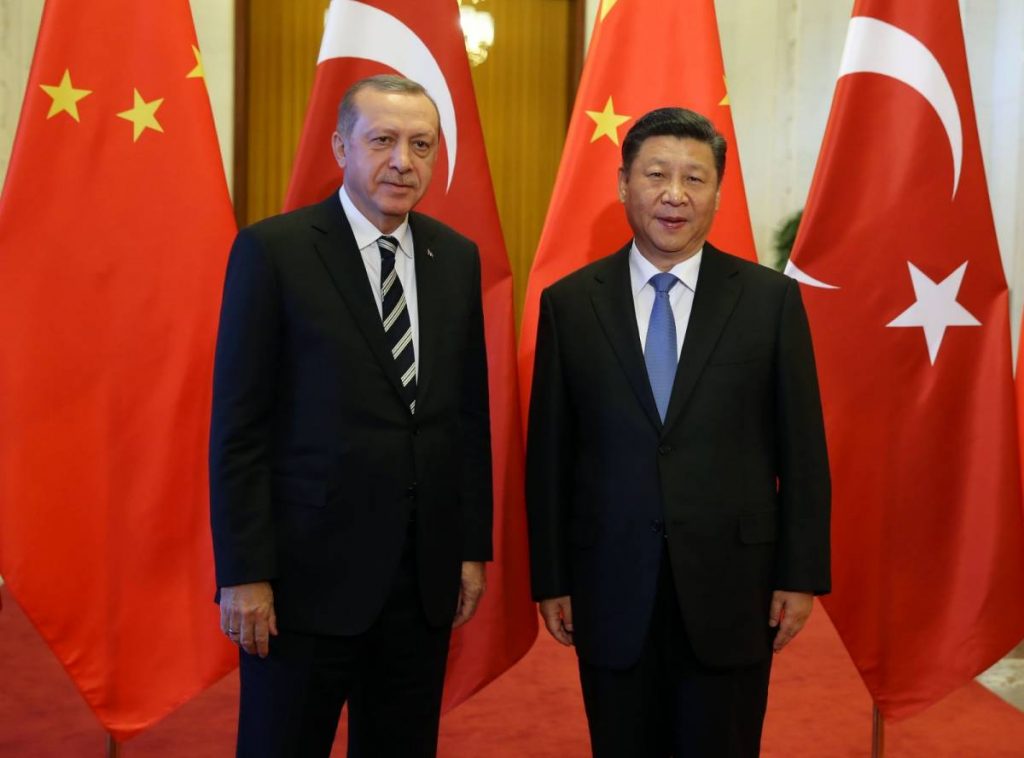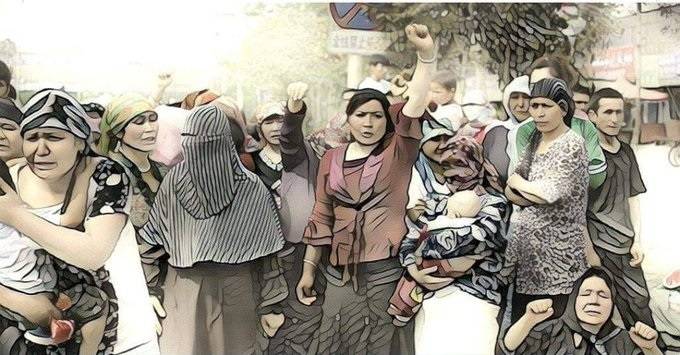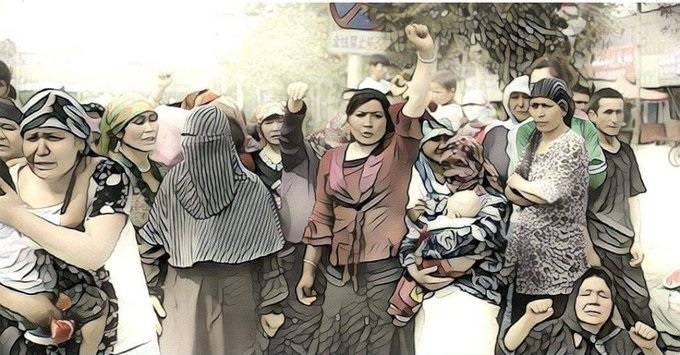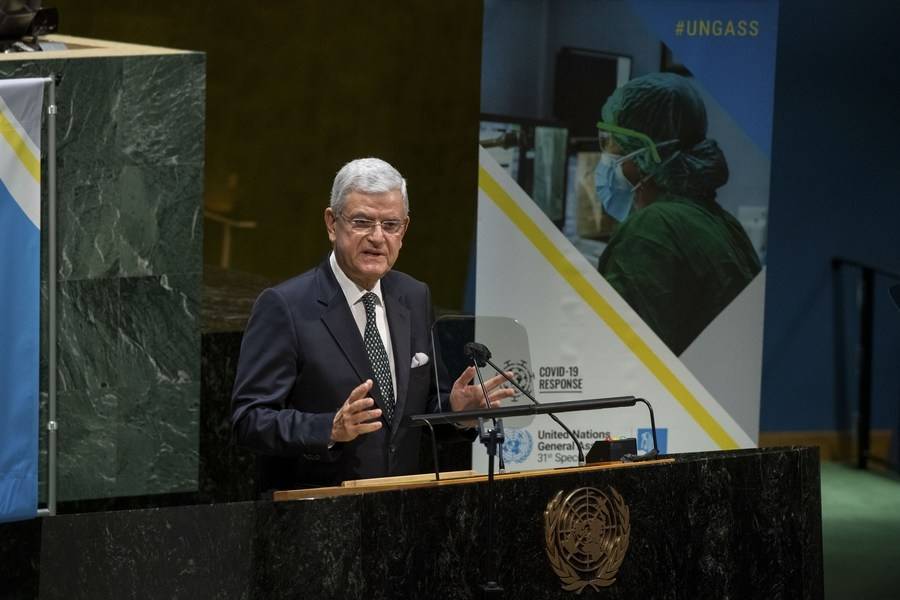Chinese authorities built a wall around Jiaman mosque at Qira in Xinjiang province. They broke all its four minarets and the central dome and installed Chinese national flag, thus removing all impressions that it was a mosque. Beijing faces accusation of destroying mosques and Islamic culture in Xinjiang… a special report by Kaliph Anaz
There have been allegations against China of demolishing mosques in Xinjiang province as a part of suppression of religious rights of minority Uyghur Muslims. One such is Jiaman mosque that was located in Xinjiang’s city of Qira. Chinese authorities built a wall around the mosque, broke all its four minarets and the central dome and installed Chinese national flag, thus removing all impressions that it was a mosque. There are hundreds of such cases. While the government denied the charges of forcibly tearing down mosques, satellite images taken a few years ago showed Muslim religious sites disappearing fast.

Since 2017, Communist Party-led Beijing government demolished or damaged about 16,000 mosques in Xinjiang, which account for 65 percent of the total number, revealed a report by Australian Strategic Policy Institute (ASPI). The institute used satellite imagery to study destruction of mosques visited by minority Uyghur Muslim population. It found estimated 8,500 mosques were demolished outright. Moreover, 30 percent of Islamic sacred sites such as shrines, cemeteries and pilgrimage routes too were torn down while 28 percent of them were damaged or altered.
ASPI located 533 mosques and carried out analysis using satellite imagery. Of those mosques, 170 were destroyed (31.9 percent), 175 were damaged (32.8 percent) and 188 remained undamaged (35.3 percent). “The Chinese Government’s destruction of cultural heritage aims to erase, replace and rewrite what it means to be Uyghur and to live in the XUAR (Xinjiang). The state is intentionally recasting its Turkic and Muslim minorities in the image of the Han centre for the purposes of control, domination and profit,” the ASPI said in its report. It questioned silence maintained by global bodies– such as UNESCO which are assigned with preservation of heritage structures — for being silent on cultural and religious destruction in Xinjiang. China however rejected the claims in the ASPI report and justified its acts as “restructuring mosques for safety of Muslims”.
Domination or interference in affairs of ethnic minority cultures and communities has surged since Xi Jinping took over reigns of China in 2013. On the similar lines of education camps in Xinjiang, Beijing government started a mass labour programme in Tibet region, which saw authorities forcing Tibetans to handover their lands to the government. Also, attempts were made to replace Mongolian language with Mandarin in Inner Mongolia to assimilate ethnic minorities into Chinese Han culture. A Muslim man named Huang Shike was arrested and sentenced to two years in prison for creating a group on social media app WeChat to hold discussion about Islam. According to Chinese judicial document, the group “disturbed normal religious activity” and violated laws regarding use of internet to discuss religion.
Now, China is again accused of targeting imams or Muslim religious leaders in Xinjiang. As many as 630 imams and other Islamic leaders in the province were detained since 2014 in the crackdowns to assimilate Uyghur culture with the China’s national ideology. These leaders were found to be charged with propagating extremism””, “inciting separatism”, “gathering crowd to disturb social order” among others. And 304 of them were sent to prison, finds the Uyghur Human Rights Project.

Mosques in Xinjiang have been fitted with surveillance cameras as Beijing government goes into hyperpolicing to keep a watch and target people perceived as threats. Investigations by rights group showed Chinese authorities have set a goal of reducing footfall in the mosques, and decreasing attendance is seen as success. Darren Byler, a researcher at the Center for Asian Studies at the University of Colorado, said “The system is set up in a way that’s producing hyperpolicing where any strange or any kind of aberrant behavior is reported.” And ethnic minorities like Uyghurs and Kazaks are very susceptible to this kind of hyperpolicing as they monitored on a micro level- – both by human policing and by the application of the technology, Byler added.
Bill Drexel, who researched Chinese state surveillance, said China has installed surveillance tech in Xinjiang especially in Kashgar city to support more comprehensive urban surveillance, vast economic exploitation, and bring changes in Uyghur culture which pleases Beijing. “The power of surveillance technology to work against minorities is considerable. Total surveillance-control of a minority has already been achieved, with sobering efficacy,” Drexel added.
READ MORE: Pakistan and Turkey’s selective support to Muslim causes
READ MORE: China transformed into a full-fledged Surveillance State during Covid












